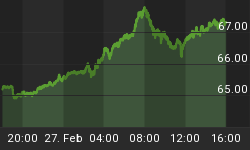In further considering the current circumstances facing US monetary supply, some new revelations have come to light that have further clouded the so-called"-flation debate."
Is it possible that recent developments in the US economy might be leading to a result other than what is being widely anticipated by the market? Something which Fed Chairman Bernanke might not be considering, much less defending us against?
The Facts
- Since the liquidity crisis in 2008, most corporations have wound down substantial amounts of leverage and built up large cash positions.
- After recent developments in the mortgage market, the process of securitization - which has been helping to fuel money velocity increasingly since the 1970s - is effectively broken. Many big lenders are in more trouble than they could even hope to realize, as are investment banks that failed to their due diligence and have lost the faith of many investors.
- Hence, the traffic jam in lending money means that many companies can't borrow - at least not at reasonable interest rates - and don't need to.
The Impact
With the lending system slowed so severely in this country, there is much less velocity of money. Even though so much money has been created in recent years, it simply isn't flowing around the economy. This trend shows no sign of reversing in the near future.
Is it possible that despite everything Bernanke, Geithner (and Paulson before him) have done, the decrease in velocity of money might offset the recent increase in money supply? In other words, are we about to see a period of relative monetary stability, as opposed to inflation OR deflation?
Feedback
As we assess developments in the US economy and monetary policy we continually fine tune our view of where the market is headed and why. As we ponder these new revelations, we can't help but wonder whether we've missed something.
We are open to other perspectives on these factors, and would encourage any readers with well-formed opinions on these matters to weigh in either by commenting on this article or e-mailing its author at dock2@treeceinvestments.com.















